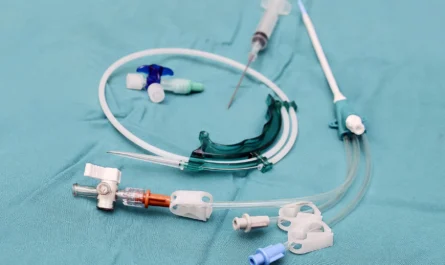
Stem cell manufacturing holds tremendous promise for developing life-changing new medical therapies. By understanding how to grow stem cells efficiently at scale and retain their important properties, researchers are unlocking new opportunities for regenerative medicine. This article explores some of the latest developments in stem cell manufacturing and its potential to transform patient care.
Current State of Stem Cell Therapies
While stem cell therapies are not yet widely available, recent clinical trials have demonstrated safety and shown early signs of efficacy. Mesenchymal stem cells (MSCs) are among the stem cell types furthest along in clinical development for a variety of conditions like graft-versus-host disease, spinal cord injury, and cardiovascular diseases. However, there remain significant challenges to overcome before stem cell therapies can reach their full potential to treat disease and injury. Cultivating stem cells on a large scale while retaining their vital characteristics is a crucial step to advance regenerative medicine.
Challenges in Stem Cell Manufacturing
Current stem cell manufacturing methods have important limitations that hinder the practical application and commercialization of regenerative therapies. Traditional techniques rely on plastic lab ware and conditions that are difficult to standardize and scale up. It can also be challenging to maintain stem cells in an undifferentiated, proliferative state during expansion culture. Exposure to animal-derived components increases safety risks. Bioprocessing expertise is needed to transition stem cell manufacturing methods from the laboratory to a commercial manufacturing setting where products can be consistently produced according to rigorous quality standards. Overcoming these challenges requires innovation in engineering stem cell growth systems.
Developing Novel Biomanufacturing Platforms
To address these limitations, researchers are exploring new platforms for stem cell manufacturing. One such approach utilizes microcarrier culture systems where stem cells are grown while attached to small, evenly sized microcarriers that are suspended in a bioreactor vessel. This architecture offers advantages over traditional two-dimensional culture methods, including a large growth surface area to maximize cell yields, superior control and standardization of culture conditions, and scalability to meet clinical demand. Continuous perfusion bioreactors are also being investigated to supply nutrients to cells while removing waste, allowing longer production runs. Transitioning to defined media formulations that exclude animal-derived components like serum improves safety and regulatory approval prospects. Novel biomaterials are also being developed to support stem cell expansion through carefully engineered biochemical and physical cues. Through iteration and testing, these biomanufacturing innovations aim to optimize the crucial cultivation phase for stem cell therapies.
Toward Consistent, Scalable Production
With further development and testing, emerging stem cell manufacturing technologies hold promise to enable more consistent, scalable production of regenerative therapies. Microcarrier-based suspension culture within perfusion bioreactors offers a particularly compelling model for consistent stem cell expansion from laboratory to industrial scale. By integrating upstream cell processing with downstream purification and formulation development, stem cells could potentially be produced under well-controlled conditions according to cGMP guidelines. Looking ahead, continued application of insights in bioprocess engineering, biomaterials science and biochemical engineering may help establish robust and reliable stem cell production platforms. With time and additional research, this could lay the groundwork for commercial scale manufacturing required to deliver the full potential of regenerative medicine.
Prospects for Commercialization and Delivery
Achieving the technical capability for industrial-scale stem cell production marks a critical step, but bringing new regenerative therapies to market will also require navigating regulatory standards and establishing economical, sustainable manufacturing operations. Ongoing clinical studies will provide crucial safety and efficacy data to support regulatory review pathways. Standardized characterization methods are also vital to demonstrate product quality and consistency between batches. With well-controlled biomanufacturing processes in place, facilities with capacity and capabilities for commercial production can be established and licensed for therapeutic manufacturing. Advanced therapies like stem cell products likely require novel payment and delivery models as well. By addressing both technical and commercialization challenges, the prospects continue to improve for making safe, effective regenerative therapies accessible to patients.
Concluding Remarks
While significant hurdles remain, ongoing progress in stem cell biomanufacturing innovation enhances the feasibility of developing regenerative therapies. With continued efforts to optimize culture systems, scale production capacity and address commercialization factors, it seems realistic that stem cell-based products may start entering clinical practice within the decade. By establishing robust and reliable stem cell production methods, researchers are helping to fulfill the promise of regenerative medicine to treat debilitating diseases in novel ways. With persistence and collaboration across disciplines, biomanufacturing advancements hold great potential to transform patient care and outcomes.
*Note:
1. Source: Coherent Market Insights, Public sources, Desk research
2. We have leveraged AI tools to mine information and compile it


